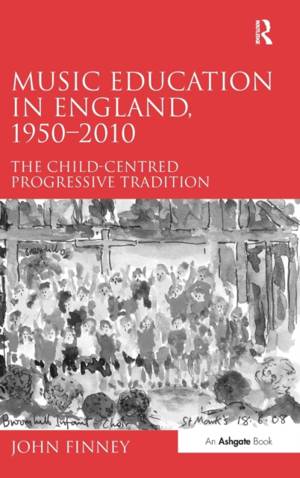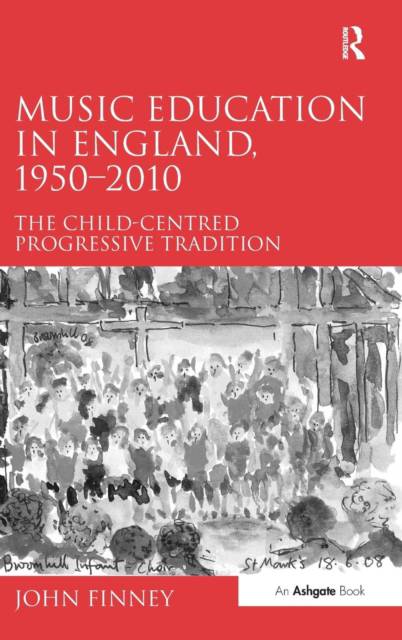
- Retrait gratuit dans votre magasin Club
- 7.000.000 titres dans notre catalogue
- Payer en toute sécurité
- Toujours un magasin près de chez vous
- Retrait gratuit dans votre magasin Club
- 7.000.0000 titres dans notre catalogue
- Payer en toute sécurité
- Toujours un magasin près de chez vous
Music Education in England, 1950-2010
The Child-Centred Progressive Tradition
John Finney
Livre relié | Anglais
202,95 €
+ 405 points
Description
John Finney examines the child-centred progressive tradition to create a fresh way of evaluating ideas and practices that have evolved since 1950, that have shaped the lives of music teachers and their pupils, and that have now become disfigured, residual and altogether lost in the light of social, cultural and political change. Finney presents a compelling, analytical account and provides fresh inspiration for practitioners, new challenges for researchers, and a landmark in the field of arts and music education.
Spécifications
Parties prenantes
- Auteur(s) :
- Editeur:
Contenu
- Nombre de pages :
- 198
- Langue:
- Anglais
Caractéristiques
- EAN:
- 9781409410768
- Date de parution :
- 28-01-11
- Format:
- Livre relié
- Format numérique:
- Genaaid
- Dimensions :
- 156 mm x 234 mm
- Poids :
- 458 g

Les avis
Nous publions uniquement les avis qui respectent les conditions requises. Consultez nos conditions pour les avis.






